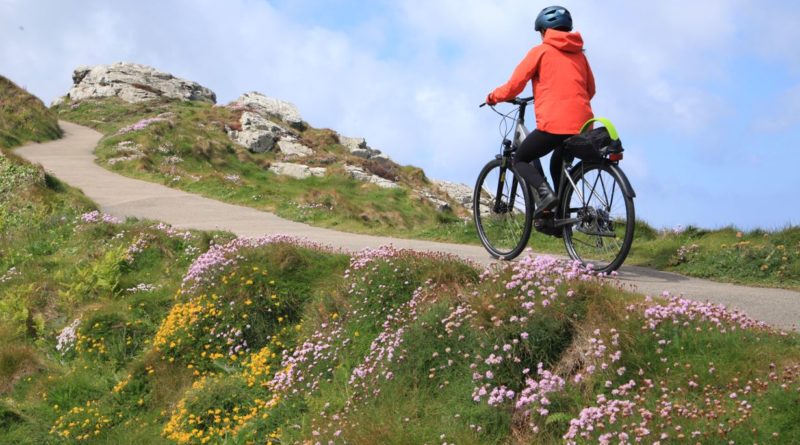Gov National e-cycle support scheme comes up short without purchase subsidy
The government’s ‘national e-cycle support scheme’ must include an electric bike purchase subsidy to shift people out of cars for short journeys and accelerate sluggish uptake of cycling, industry warns – as charities are invited to bid to run the national programme.
Last month the Department for Transport (DfT) began inviting applications to run the national e-cycle support scheme, with a deadline of Christmas Eve for the first phase. While the winning charity – or consortium – will receive up to £8m to run a national ‘try before you bike’ scheme, long-term e-cycle loans, and providing e-cycles for access to education and employment, there is no mention of a long-awaited e-cycle purchase subsidy.
The document setting out the scheme parameters references cycling’s potential to improve health and the environment, while helping reduce car journeys. It acknowledges the role of ebikes in tackling barriers to cycling for women, BAME groups and those on low incomes.
The Bicycle Association’s (BA) Steve Garidis said: “I think any support for electric bicycles is to be welcomed. However, I don’t know if the programme, though it’s called national, is truly a national programme without a purchase subsidy.
“It’s a huge omission, particularly with the national objective [to increase cycling rates], to not have subsidies, because that’s what is really needed to drive change at scale”.
However, Garidis welcomed the focus on people “who wouldn’t consider cycling without the electric assistance – that’s one of the main target audiences for e bikes”.
The national e-cycle support scheme will have three parts: the short-term opportunities to try e-cycles in “a relaxed, pleasant environment”; longer-term loans of e-cycles, to help people incorporate e-cycles into their daily lives, and e-cycles to help people access employment and skills opportunities.
The DfT says it wants the programme to reach underrepresented groups, and hopes the programme will increase e-cycle uptake overall, as well as public awareness of the machines. It wants the scheme to “accelerate the number of trips by e-cycle replacing motor vehicle journeys in order to maximise health, economic, wellbeing and carbon savings by 2025”. Adapted e-cycles must be made available for events and longer-term loans, for people with mobility impairments or disabilities, with cycle training and maintenance also provided, as part of the grant. Use of the word “e-cycles” rather than “ebikes” throughout the document acknowledges the importance of non-standard cycles in wider uptake of cycling.
One charity or consortium will be expected to deliver the entire programme, through pilots in different regions and settings across the UK for a year, with the potential to extend the scheme for a further three.
This is the first of a two-stage competition, an expression of interest and application, the second being a business case development stage. Winners will be chosen by 11 March, with scheme delivery to begin 1 April 2022.
While the EU Council recently announced a VAT cut on cycles and e-cycles, no such scheme is imminent in the UK, while the rising cost of raw materials, logistical and supply issues push prices up. The government’s Gear Change document last summer indicated ebike support “could include loans, subsidies, or other financial incentives”, with further indications from national newspapers of a subsidy since, but details are yet to emerge.
Garidis said: “There’s a view the market will sort itself out and prices will come down, and that just isn’t the case with ebikes. All the drivers on price are going in the opposite direction.”
Sales data indicates the cycle boom of 2020/21 was driven by leisure cycling, and a push for transport cycling was needed, says Garidis. “It’s not just about reducing the prices, it’s about the national signal you send as a government as to what you think is important and where we should be going”.
The Bicycle Association’s Phillip Darnton wonders if attitudes towards cycling are holding back progress – the idea cycling is a pastime for people who can afford to buy an ebike already, rather than a serious form of transport. The DfT promoting e-cycling among so-called hard-to-reach groups may be a way of changing minds over this.
He says while the money itself is important, the message purchase subsidies would send are of a “strategic determination to move towards active travel and encourage people out of cars for short urban journeys and onto ebikes”.
“They’re sending messages they are serious.”
In 2019 the BA produced a detailed report showing the significant impact of ebike subsidies around the world, in increasing uptake and replacing car journeys. At present, e-cycles are the only electric vehicle not to enjoy a purchase subsidy.
Darnton said: “In Paris, the €250 purchase subsidy had a tremendous effect – the uptake has been extraordinary – whereas uptake here has been dismal.”
He said while this year looks to match last year’s high UK e-cycle sales of 150,000-160,000 it pales in comparison with countries on the Continent – and more is needed to bring the UK in line with Europe in replacing car trips with cycling.
“Germany were really disappointed that because of last minute supply issues they weren’t going to hit 2.3m ebike sales this year,” he said.
“The opportunity is formidable, there’s no question about it.”



